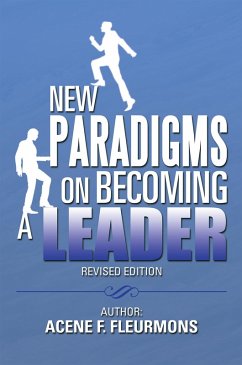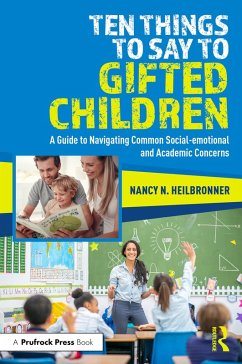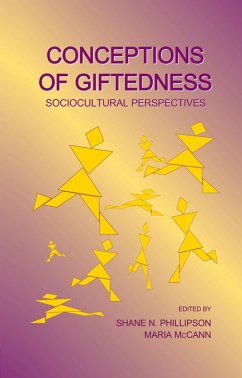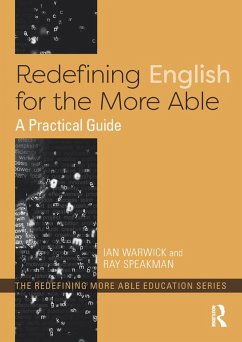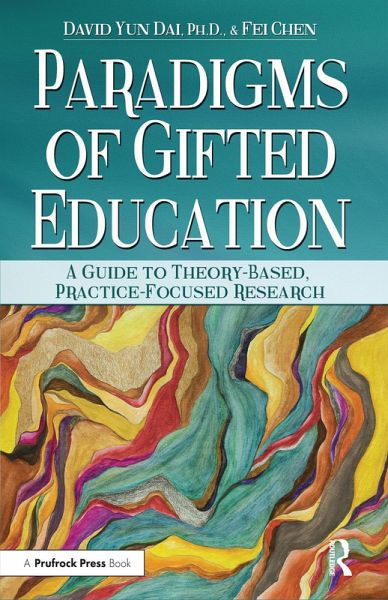
Paradigms of Gifted Education (eBook, ePUB)
A Guide for Theory-Based, Practice-Focused Research

PAYBACK Punkte
27 °P sammeln!
This book highlights how to conduct research in gifted education when researchers have to choose from myriad theoretical ideas, hypotheses, claims, practical models, and strategies. It shows researchers how to build clarity, rigor, and relevance into a research agenda that combats fragmentation and contributes to enhanced theoretical and practical endeavors in the field. Specifically, Paradigms of Gifted Education advocates a paradigmatic approach to conducting research in gifted education and shows how it can be done every step of the way by specifying the essential questions of What?, Why?, ...
This book highlights how to conduct research in gifted education when researchers have to choose from myriad theoretical ideas, hypotheses, claims, practical models, and strategies. It shows researchers how to build clarity, rigor, and relevance into a research agenda that combats fragmentation and contributes to enhanced theoretical and practical endeavors in the field. Specifically, Paradigms of Gifted Education advocates a paradigmatic approach to conducting research in gifted education and shows how it can be done every step of the way by specifying the essential questions of What?, Why?, Who?, and How? in a coherent manner, and by selecting methods that are appropriate for the question asked and the phase of the research efforts. To facilitate the development of a research agenda, the book identifies three major paradigms of gifted education and 20 essential research questions that would help move the field forward.
Dieser Download kann aus rechtlichen Gründen nur mit Rechnungsadresse in A, B, BG, CY, CZ, D, DK, EW, E, FIN, F, GR, HR, H, IRL, I, LT, L, LR, M, NL, PL, P, R, S, SLO, SK ausgeliefert werden.







